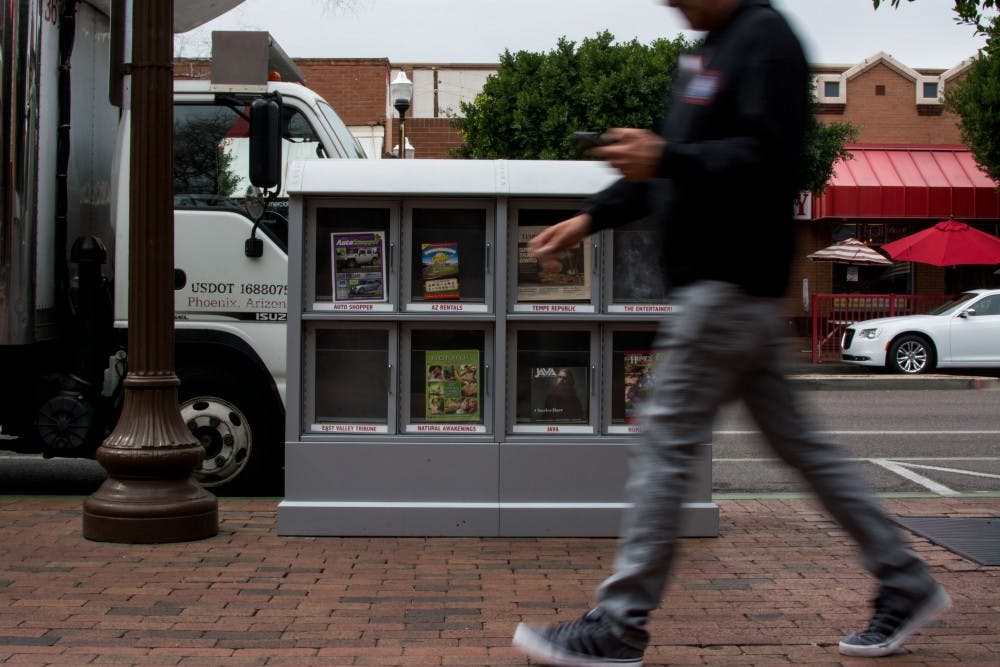The people and the press must not continue to be adversaries.
Confidence in the news media has suffered a serious decline in recent times, and there is not one easy way to fix the lack of trust between the media and the public. Repairing the public's trust in the press will require significant efforts from both sides.
Arizona's own Sen. John McCain has made sure to keep the public aware of the danger of a quieted media, and students can make their own contributions to protect our liberties from infringement by fact-checking the outlets we listen to.
Without a free and fair press, countries can be at risk of falling into forms of government that resemble more authoritarian processes that can be damaging to the people.
But maintaining a state of trust between the people and the press is not a simple task.
"It's critical that journalists do their jobs in trustworthy manners, and people and students also need to do their own research to rely on trustworthy sources," said Dan Gillmor, a professor of journalism at ASU. "With so much outright misinformation, there is greater responsibility on the part of the public to figure out what is true and what isn't."
There is particular mistrust of the media within the 18 to 49 age group that most ASU students reside in, with only 26 percent of individuals within the age group reporting a great deal or a fair amount of trust in the media.
Young people experience significant decline in trust of media. #PostTruth #AlternativeFact #FakeNews @Gallup graph published by @risj_oxford pic.twitter.com/xYg5bbCa64
— Chris Spannos 㛨 (@cspannos) February 22, 2017
Restoring faith in the press is not as easy as simply reporting better news.
"Finger-pointing will not help anyone. What we need is for the government and the media to just do their jobs," said Paul Atkinson, assistant director of strategic marketing and communications at the ASU College of Public Service and Community Solutions. "Many members of the media neglected parts of the real America, resulting in many people who do not see themselves represented in news coverage."
In order to get media coverage that reports effectively, students and citizens must be able to fact check and ignore the media that produce clickbait and other unproductive news that are only trying to garner views.
If the public can do its part to deny attention to ineffective or counterproductive media, there will be less misinformation and fear-mongering to be spread around social media and other outlets.
The media is producing plenty of effective and truthful news, but the public must do its part to ensure that it listens to factual news.
"We don't need to upgrade journalism, we need to upgrade ourselves," said Gillmor.
The relationship between the press and the people can and must be fixed for the betterment of both parties, as well as for the preservation of democracy in the United States.
Reach the columnist at jbaker22@asu.edu or follow @jonahpbaker on Twitter.
Editor’s note: The opinions presented in this column are the author’s and do not imply any endorsement from The State Press or its editors.
Want to join the conversation? Send an email to opiniondesk.statepress@gmail.com. Keep letters under 500 words and be sure to include your university affiliation. Anonymity will not be granted.
Like The State Press on Facebook and follow @statepress on Twitter.




